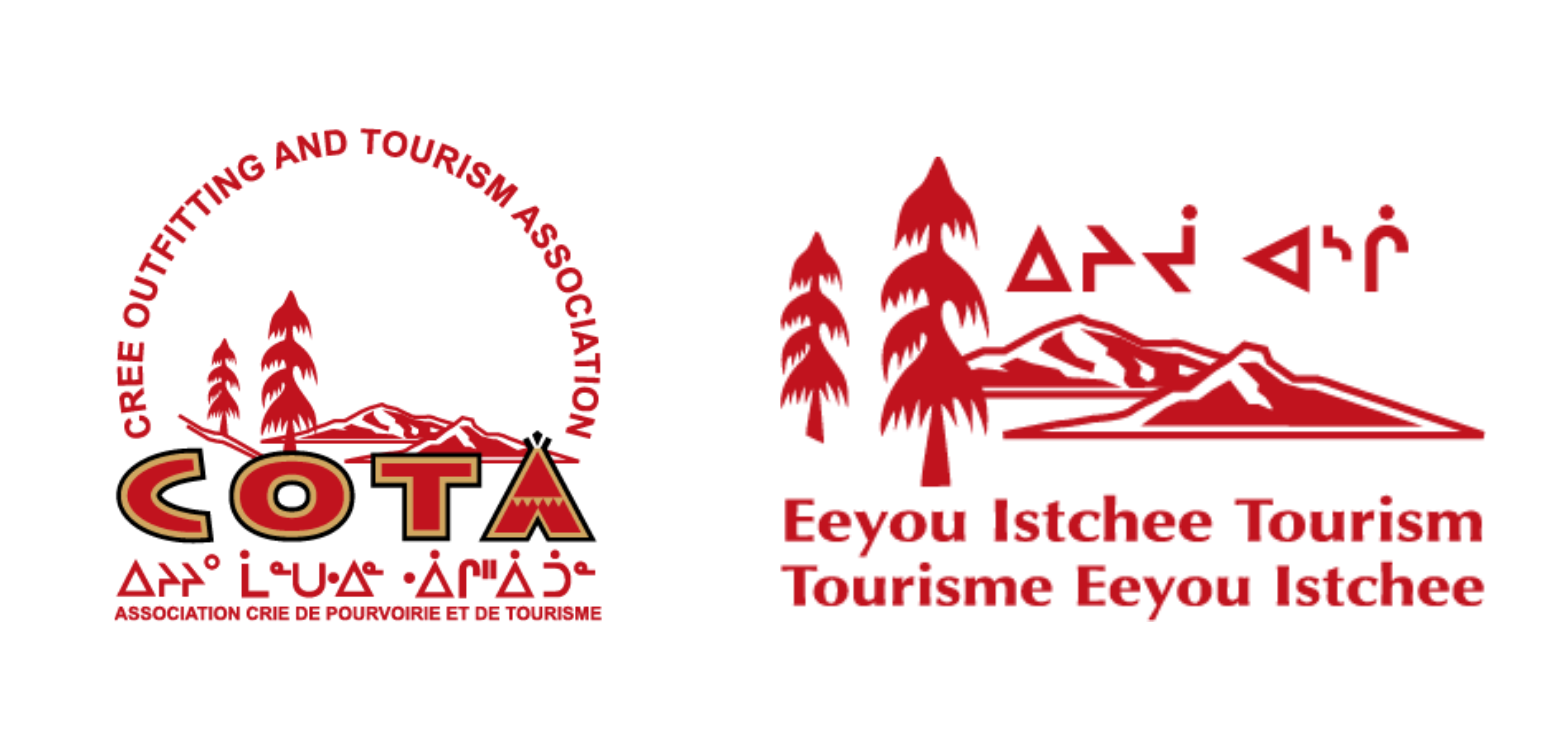COTA’s mission is to develop and implement a collective vision for a world-class sustainable tourism industry in Eeyou Istchee, that is in harmony with Cree culture and values, and that involves a partnership among Cree communities, institutions and businesses. One planning tool often used to preserve the environment and Cree culture, and limit the negative impacts of tourism is to educate visitors about the type of activity and behaviour that is expected during their visit. This helps both the visitor and the host community make the most out of the visit.
Key Issues
- Protect environment
- Protect privacy (photos)
- Authenticity
- Giving adequate directions and information
- Respect for the talleymen’s authority
- Packages delivered as advertised
- Visitor numbers, booking
- Limiting numbers, access to territory
- Respect traditional activities, seasons, lands, Cree way of life
- Limiting negative impacts, theft, vandalism etc. (both tourists and community – watchman)
- Don’t give money to kids
- Teach a few Cree words to tourists
- Catch & release, non-consumptive
- Sustainable
- Public involvement: cultural director, elders, talleymen, etc. (stakeholders)
- Community standards at base camp
Guidelines for Local Tourism Industry
- Protection of environment is critical
- Ensure tourism products and information are authentic (true representation/respectful of Cree culture)
- Ensure adequate signage, directions, welcome, clear entry point, where to go on approach to and entering the community
- Provide background information to tourists before and upon arrival
- Obtain information about visitor groups, special requirements (vegetarian? Allergies? Interests? Health? Etc.) prior to booking
- Respect for talleyman’s authority
- Ensure that any products are delivered exactly as advertised
- Review visitor carrying capacity and limit numbers, group size, etc. as required (e.g. no. of buses or groups per day, size of canoe parties etc.)
- Develop and maintain client database on visitor numbers and types
- Respect the Cree way of life, traditional activities, seasons, lands which take priority over tourism needs (e.g. avoid taking tourists into territory during goose breaks, moose breaks etc.)
- Ensure safety and security for clients and their belongings at all times
- Ensure clients and tourists do not damage or remove any Cree property, historical artefacts or sites, camp sites, natural features, wildflowers, wildlife, burial grounds etc.
- Include community education and awareness programs around tourism – e.g. children do not ask for money, try to make tourists welcome, smile, litter removal, etc.
- Teach a few Cree words, expose visitors to Cree language
- Encourage catch and release policies, barbless hooks, and other sustainable or non-consumptive practices
- Encourage visitors to follow ethical hunting practices
- Promote responsible and sustainable tourism practices for locals and visitors
- Ensure ongoing public involvement and consultation with stakeholders – community members, cultural co-ordinators, CTA, talleymen, elders, tourism operators, businesses etc.
- Develop and monitor operator standards – e.g. for accommodation, meals, hospitality, site cleanliness, safety, litter, garbage removal, promotion and marketing
- Ensure education and training for tourism operators, guides and businesses
- Develop partnerships within the community and with other communities to ensure economic benefits are spread out and information is shared
Guidelines for Tourists
- Protection of environment is critical
- Do not leave litter, garbage, animal carcasses etc. – pack in, pack out – leave no trace
- Protection of privacy is important, please ask before taking photographs, respect people’s homes and private space
- Try to inform yourself about the Crees, culture and their communities and region before arrival
- Respect camps, traps, docks, boats, trails, equipment etc.
- Respect any request to limit numbers, group size, permit requirements and fees etc. and request permission for any access or activities on Cree lands
- Respect Cree way of life and traditions and any requests to limit your activities in order to maintain these
- Do not damage or remove any Cree property, historical artefacts or sites, camp sites, natural features, wildflowers, wildlife, burial grounds etc.
- Do not give money to children who ask for it, if you wish to make a contribution to a community project do so through appropriate channels
- Be open to learning a few key phrases of Cree
- Use catch and release, barbless hooks and other sustainable or non-consumptive practices for fishing
- Use ethical hunting practices
- Support Cree tourism operators who use sustainable practices (environmental, social, economical, cultural)
